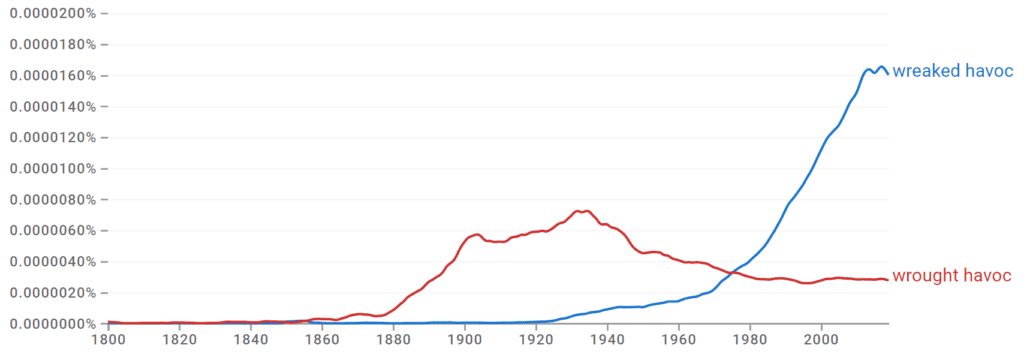Language, just like the forces of nature, can sometimes wreak havoc on the unversed. Ironically, one of the phrases that causes the most confusion is itself all about causing chaos: wreak havoc.
With the power to turn any quiet afternoon into a whirlwind of chaos and drama, this phrase is a favorite of scriptwriters and novelists alike. I use it all the time! But what does it really mean? Stick around as I break down all the details for you!
What Does Wreak Havoc Mean?
In essence, to wreak havoc means to cause a significant amount of damage and disruption or chaos. The havoc in the phrase refers to chaos or disorder, and the word wreak is an action verb indicating the cause or infliction of something. So, when you wreak havoc, you’re essentially unboxing a generous helping of chaos! *Laughs evilly*
The Correct Past Tense of Wreak Havoc
Get your notepads ready! A lot of sources will give you conflicting information here, but the correct past tense of wreak is wreaked. Hands down, no questions about it. However, there was a time when the past tense was wrought havoc, but its popularity dove off a cliff during the early 1900s, when wreaked havoc suddenly appeared.
So, if you’re talking about a hurricane that’s caused significant damage to a town, you’d say something like, “The hurricane wreaked havoc on the coastal community.” This showed that the chaos of the hurricane already happened.
You’d use wreaking in continuous tenses (things that happened and are currently still happening), like, “Our new puppy is wreaking havoc on my carpets!”
Reeking Havoc or Wreaking Havoc
If something is reeking havoc, it’s time to pinch your nose! Reek is a word we use to describe a strong, unpleasant odor. So, unless you’re talking about a particularly odorous disaster, the phrase you want is wreaking havoc.
Origin and Etymology of Wreak Havoc
The phrase wreak havoc delves deep into the history of the English language. Havoc originates from an Old French word havot, which was a war cry that signaled soldiers to loot and pillage after a victory. Basically, cause chaos.
But the word wreak comes from the Old English word wrecan, which means to avenge, push or punish. So, when you put them both together, you get wreak havoc.
What Is Another Term for Wreak Havoc?
These synonyms of wreak havoc will work in place of the term in almost any context.
- Create chaos
- Cause mayhem
- Sow disorder
- Unleash destruction
- Stir up trouble
Wreak Havoc Examples in a Sentence
- Your untrained puppy wreaked havoc in my living room and chewed everything in sight.
- The record-breaking storm is wreaking havoc along the coast, causing damage in the millions and taking lives.
- The rising inflation is wreaking havoc on grocery bills.
- Uncontrolled wildfires continue to wreak havoc across several Canadian provinces.
Unleash Chaos With English Lessons!
And there you have it, uncontrollable chaos neatly boxed and explained. Now you’re well-equipped to wreak havoc in your next English conversation or written piece—figuratively speaking.
Check out some other articles we covered:




Comments are closed.